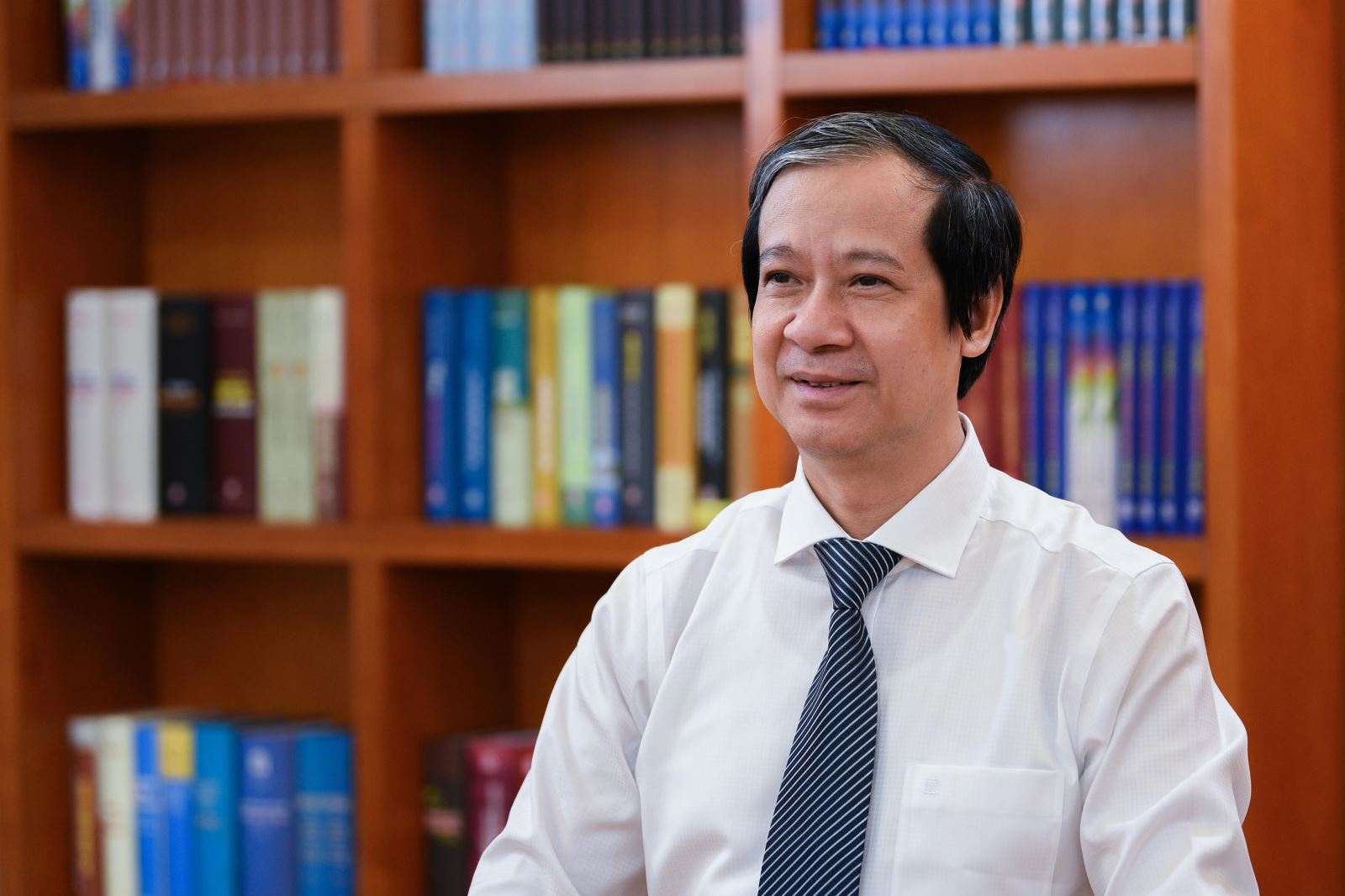
Dear Minister, Resolution 71-NQ/TW is a document of strategic significance, not only for the education sector, but also for human development. So, how does the education sector build and develop the teaching staff according to Resolution 71-NQ/TW?
The Ministry of Education and Training is focusing on effectively implementing Resolution No. 71-NQ/TW, which clearly defines the task of building and developing a team of teachers as the core force, playing a central role in the cause of educational innovation according to the motto "Taking quality as the axis, taking teachers as the key, taking technology as the lever".
At the same time, the Ministry completes the legal framework, mechanisms and policies for developing the teaching staff, typically the Law on Teachers, aiming to build a team that is "sufficient in quantity, strong in quality, dedicated - has vision - has talent", meeting the requirements of fundamental and comprehensive innovation in education and training; innovates the work of training, fostering and developing teachers' careers, focusing on forming and developing professional qualities, professional capacity, spirit of innovation and creativity, ability to inspire and guide learners in learning and practicing.
In addition, the Ministry innovates and effectively implements the 2018 General Education Program and the new Preschool Education Program, which defines the role of the teacher as an organizer, guiding learners to proactively explore knowledge, practice skills and build a positive learning attitude, instead of just imparting knowledge one-way.
The Ministry also promotes digital transformation and innovation in teaching methods, encourages teachers and managers to apply information technology, exploit modern digital platforms and tools, to build a smart, open, creative, humane learning environment, adapting to the requirements of the digital age.
In addition, the Ministry builds a positive, democratic, and humane working environment, creating conditions for teachers to learn, share experiences, and develop professional capacity, thereby nurturing passion, interest, and responsibility in teaching and educating students; honoring and spreading the image of creative, dedicated, and professional teachers through communication activities, emulation movements, awards, competitions, and programs to honor outstanding teachers and managers, in order to affirm the value, position, and pride of the teaching profession in society.
The Law on Teachers has been passed by the National Assembly, in which the development of the teaching staff is the focus and goal. So far, how has the Law on Teachers and sub-law documents been implemented, Minister?
As soon as the National Assembly passed the Law on Teachers, the Ministry of Education and Training developed and submitted to the Government 3 Decrees and 14 Circulars, ensuring they take effect simultaneously when the Law on Teachers takes effect on January 1, 2026. These documents were developed in a standardized and better direction for teachers, with some notable points.
First of all, it is the standardization and synchronization in the whole system when implementing the consolidation of two systems of standards (professional titles and professional standards) into a system of titles associated with professional competency standards, applied uniformly to both public and non-public. This aims to create a common quality level for the entire team; ensure fairness in access to quality education for students; increase transparency and accessibility in assessment, selection and training of teachers.
At the same time, regulations on the content and methods of teacher recruitment will be adjusted in line with pedagogical practice, ensuring quality input, appropriate to each level of education and training level. Policies on salaries, allowances, support, and teacher attraction will also be reviewed and supplemented, contributing to increasing income and improving the lives of teachers.
How will the empowerment and innovation of the recruitment, mobilization and rotation mechanism of the teaching staff be carried out when the Education sector is the leading unit, Minister?
Currently, the Ministry of Education and Training is in charge of drafting a Decree detailing a number of articles of the Law on Teachers and a Circular regulating the authority to recruit teachers. Accordingly, the authority to recruit, mobilize, and transfer teachers in preschool, general education, continuing education, and public specialized schools is proposed to be assigned to the Department of Education and Training to take charge of implementation.
In the draft Resolution of the National Assembly on a number of specific and outstanding mechanisms and policies to make breakthroughs in education and training development, the Ministry of Education and Training proposed to assign the Director of the Department of Education and Training to exercise the authority to recruit and receive teachers, managers of educational institutions and staff in preschools, general education, continuing education, specialized schools and public vocational high schools in the province.
The Ministry of Education and Training is developing a Decree detailing a number of articles on the Law on Teachers and detailing the content and methods of teacher recruitment, ensuring that the recruitment content is based on the standards of the teaching profession, the recruitment method is through examination or selection, including pedagogical practice. This is the basis for selecting people with sufficient capacity and qualities, especially pedagogical practice capacity to immediately meet the teaching and education tasks when recruited into the industry, and at the same time, it is also consistent with the orientation of eliminating the regulations on internship for civil servants when the revised Law on Civil Servants is passed by the National Assembly in the near future.

Teachers are considered the foundation and pillar of education. Therefore, innovation in teacher training is the key to successfully implementing innovation and breakthrough in education and training development. How will the Ministry of Education and Training implement this innovation, Minister?
The Ministry of Education and Training has been, is and will be implementing a series of innovations related to teacher training.
The first is innovation in the goals and content of teacher training programs. Teacher training is aimed at developing comprehensive pedagogical professional capacity, helping teachers become organizers, guides and support students in learning; reducing the content of academic theory, increasing the amount of practice time, pedagogical internship, lesson research and real-life professional experience. Increasing the number of courses on active teaching methods, modern teaching methods, student capacity assessment, life skills education, life values, international integration capacity and critical thinking...
The second is to innovate training methods and forms. That is to organize training according to a flexible and open model, creating lifelong learning opportunities for students and teachers. The assessment of pedagogical students should be based on their professional practice capacity, ability to design learning activities, organize teaching and solve pedagogical situations, instead of just based on the results of theoretical exams.
Third is to improve teachers’ technological and digital capabilities. Pedagogical schools need to integrate the content of “digital transformation in education” into the training program; at the same time, build educational technology laboratories and digital pedagogical practice centers, creating conditions for students to experience and practice technology skills right in the learning process.
Fourth, strengthen the connection between teacher training colleges and high schools. Teacher training students need to participate in class observation, teaching assistantship, experiential teaching, and lesson research right from their second and third years at university. Conversely, core teachers and excellent teachers in high schools should participate in teaching or guiding internships at teacher training colleges. This helps to connect theory with practice and improve the quality of training.
Fifth is to innovate the training and assessment of teachers after training: build and deploy a regular training system, online, through a digital learning network, to help teachers regularly update new methods, technologies and professional skills. The assessment and classification of teachers must be carried out according to the Professional Standards for Teachers of General Education Institutions, ensuring fairness, transparency, and connection with student education results, professional qualities and practical capacity.
The sixth is to internationalize teacher training: expand cooperation with educational institutions and universities with prestigious pedagogical training in the region and the world; implement programs to exchange lecturers and students, link training, recognize credits, as well as research and approach international teacher professional standards.
What is the Minister's view on maintaining teacher allowances in addition to new salaries? What is the Ministry of Education and Training developing a Decree regulating salary policies and allowances for teachers?
According to the draft Decree, teachers are expected to receive a special salary coefficient in addition to the salary and allowance regimes that teachers currently receive. Specifically, the draft Decree currently stipulates that "Teachers are entitled to preferential allowances according to their profession, seniority allowances for teachers and other allowances according to the provisions of law. The beneficiaries of allowances, the level of allowances, and the method of calculating allowances shall comply with the provisions of law and the provisions of this Decree".
Implementing the roadmap and resources to implement the increase in vocational allowances, specifying the provisions in Resolution 71-NQ/TW, the Ministry is developing a Decree regulating the preferential allowance regime according to the profession for civil servants and employees working in public educational institutions. In particular, it is proposed to implement the increase in vocational allowances according to the roadmap, including two phases. Phase 1 (from 2026-2030), the Ministry is proposing to supplement the allowance for school staff by 20%; increase 15% for teachers at all levels of preschool and general education, increase the preferential allowance by 5% for teachers and lecturers at universities and vocational education institutions. Phase 2, from 2031 onwards, the implementation of preferential allowances according to the profession for preschool and general education teachers will be applied according to the provisions in Resolution 71-NQ/TW.
Regarding the roadmap, the Ministry of Education and Training is coordinating with the Ministry of Home Affairs and the Ministry of Finance to develop a Government Decree, expected to be submitted to the Government for approval in 2025, to ensure it takes effect at the same time as the Law on Teachers.
Regarding resources, when implementing, the State budget will be allocated in the annual plan and we also hope that localities will be more proactive in balancing and prioritizing education, so that this policy can truly come into life, contributing to improving life, creating motivation for teachers to feel secure in their work, and to stick with the profession for a long time, thereby improving the quality of education and spreading the humanistic values of Resolution 71.
One of the outstanding policies of the Law on Teachers is to affirm the position, protect the honor and prestige of the teaching profession. Accordingly, teachers are identified as the core force of the education sector, playing a decisive role in ensuring the quality of education; are guaranteed rights in professional activities commensurate with their position; have the right to be proactive in professional activities...
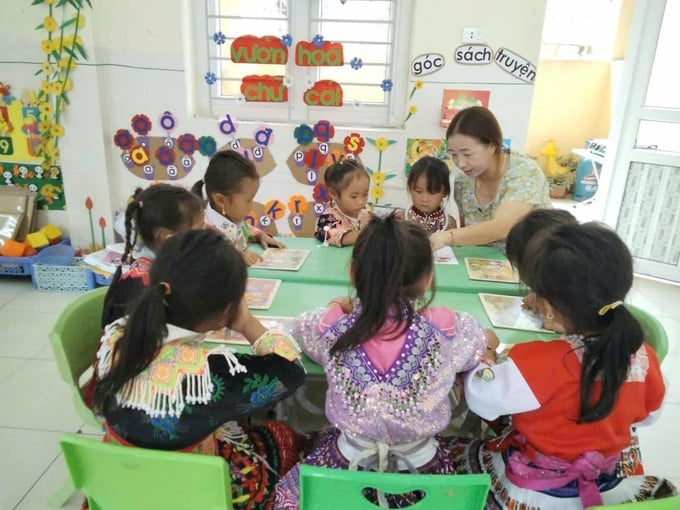
The Law also stipulates what organizations and individuals are not allowed to do to teachers, and stipulates how to handle violations of the reputation, honor, and dignity of teachers. In addition to salary and allowances, teachers are also entitled to support, attraction, and promotion policies, including: subsidies based on the nature of work and region; training and development support; periodic health care support, occupational health care; and being arranged for public housing or collective housing or house rental support when working in particularly difficult areas. At the same time, there are policies to attract and promote highly qualified, talented, specially gifted, and highly skilled people to work in particularly difficult areas; teachers in a number of important and essential fields...
These policies and regimes will be specified in the documents guiding the implementation of the Law on Teachers, expected to take effect from January 1, 2026. The above policies, together with regulations on professional standards, appointment of teacher titles, recruitment, use, honoring and rewarding teachers, etc., will be comprehensive solutions to help teachers feel secure in their work, focus on professional activities, and create motivation for teachers to improve their capacity and continuously develop their careers.
What solutions does the education sector have to attract good students to the teaching profession, Minister?
The Education sector has determined that: Developing a team of teachers is not only about training teachers, but also about nurturing people who inspire, lead and create the future for the younger generation. Attracting excellent students to the education sector is one of the top priorities and also a strategic task of the Education sector in the coming period. The Ministry is reviewing and comprehensively adjusting policies towards increasing the level of tuition and living expenses support and ensuring employment after graduation, so that pedagogical students can study with peace of mind and stick with the profession for a long time; expanding pedagogical talent scholarships, encouraging students with high achievements in national and international exams to study pedagogical fields; raising admission standards, output standards, linking training with the actual human resource needs of the locality and the requirements of renewing the general education program.
The Ministry also focuses on building an attractive professional environment and worthy social status for teachers. Priority mechanisms in recruitment, ranking, salary, promotion and professional training are being perfected so that the teaching profession can truly become a prestigious choice for talented, dedicated and ambitious people...
On the occasion of November 20, what message do you have for teachers, Minister?
On the occasion of Vietnamese Teachers' Day November 20, I would like to send to all generations of teachers, administrators and staff in the education sector across the country my best wishes, deep gratitude and wishes for health, happiness and success.
The 2025-2026 school year is the year of implementing a series of major policies and guidelines of the Party and State related to education and training. It is the year when the education sector enters a breakthrough period, comprehensive development, towards modernization and quality improvement in the spirit of Resolution 71-NQ/TW of the Politburo. In that context, I hope that each teacher will continue to maintain faith, love for the profession, constantly learn, create, and innovate teaching and management methods to meet the requirements of the new development era.
The view on the motto "Teacher is teacher - Student is student" emphasizes the relationship of respect, trust and cooperation between teachers and students.
A teacher not only imparts knowledge, but is also a role model of personality, ethics, duty and responsibility; must teach with heart, with love for the profession, so that students respect and follow. Knowledge can be found in books or on the internet, but personality and life can only be absorbed through the company of a true teacher.
Students must maintain filial piety, respect teachers, and take true learning and understanding as their goal; not just passively receiving knowledge, but actively learning, asking questions, and training themselves to grow. When students know how to maintain etiquette and study properly, that is also the greatest gratitude to their teachers.
In the current era of digital technology and the development of the Internet, the teacher-student relationship must be valued even more because only respect and affection between teachers and students can keep education from becoming distorted, pragmatic, and insensitive. Society needs to respect and strictly maintain the spirit of "respecting teachers and valuing education". Families must teach children to respect teachers and appreciate learning. Schools must create an environment for teachers and students to truly bond, and teachers themselves must always practice to properly demonstrate the role of teachers in each lesson and each action. A strong education cannot lack discipline and strictness in the teacher-student relationship.
Thank you very much, Minister!
Source: https://baotintuc.vn/giao-duc/bo-truong-bo-giao-duc-va-dao-tao-lay-chat-luong-lam-truc-nha-giao-lam-then-chot-20251117170346734.htm














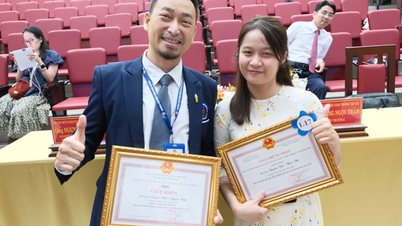

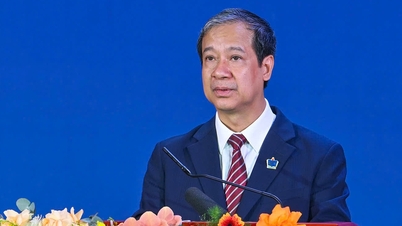




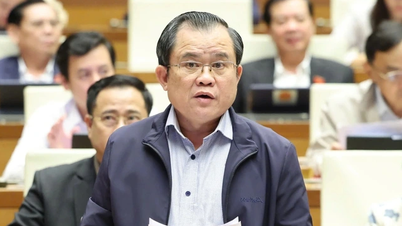

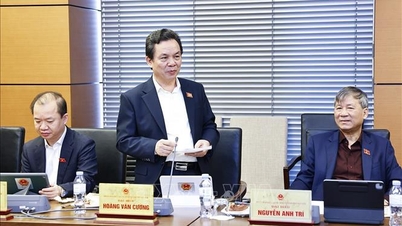








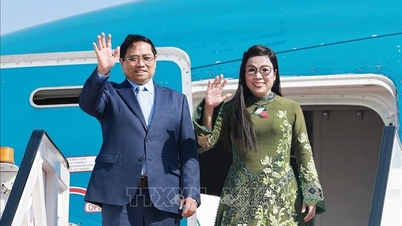




![[Photo] General Secretary To Lam and National Assembly Chairman Tran Thanh Man attend the 80th Anniversary of the Traditional Day of the Vietnamese Inspection Sector](https://vphoto.vietnam.vn/thumb/1200x675/vietnam/resource/IMAGE/2025/11/17/1763356362984_a2-bnd-7940-3561-jpg.webp)



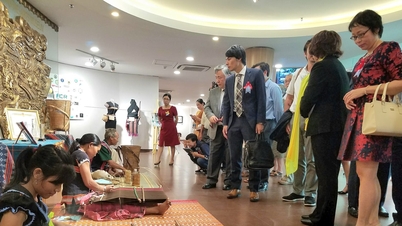






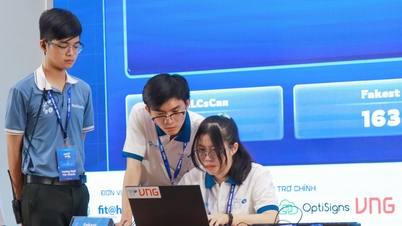


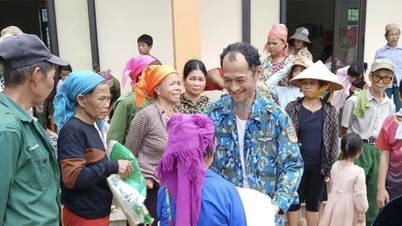












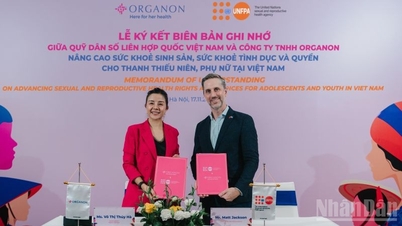










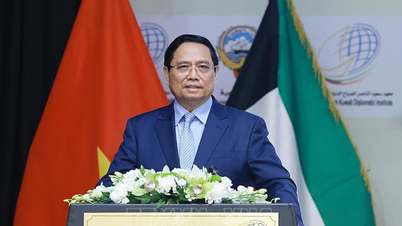
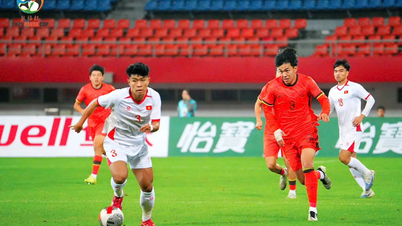












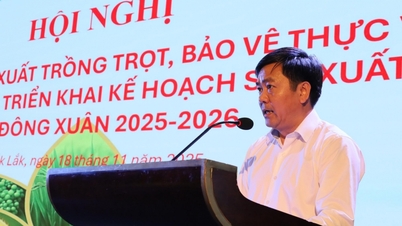

















Comment (0)